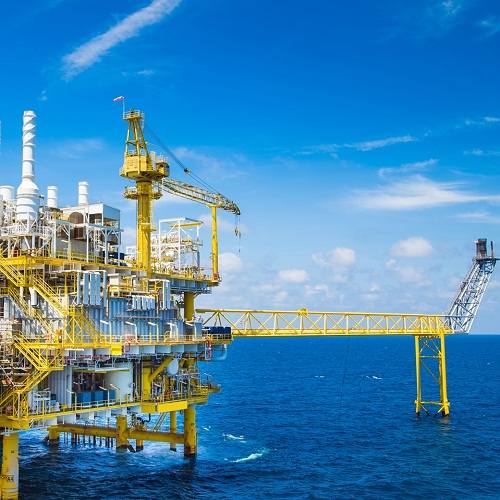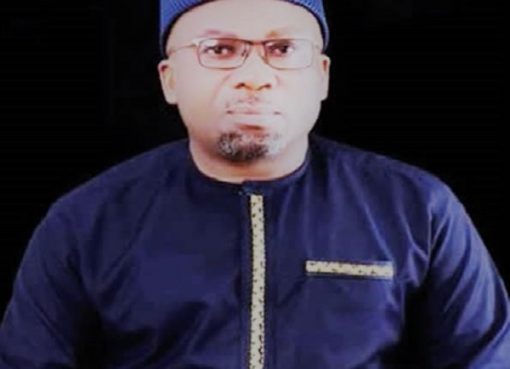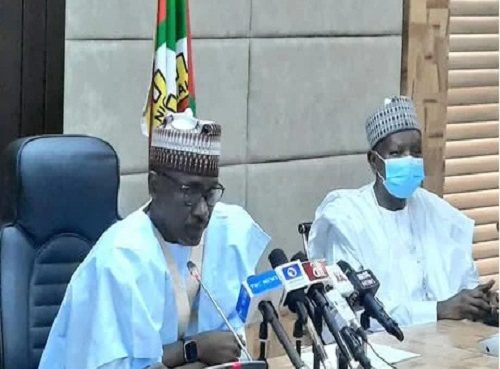As the Nigerian Upstream Petroleum Regulatory Commission (NUPRC) plans to close out on the 2020 Marginal Fields Bid Round (MFBR), the commission has insisted on due process in awarding the final documents and Petroleum Prospecting Licenses (PPL) to the winners.
The federal government has earned N174 billion so far after signature bonuses were fully paid for 119 awards earlier this year, with nine others partially paid for while 33 awards were not paid for.
Speaking on the bid closure, the Commission’s Chief Executive (CCE), Mr Gbenga Komolafe, said this will be done in a manner that showed strict adherence to the rules guiding approvals and issuance of licenses in the upstream sector of the nation’s oil and gas industry.
Komolafe, who had hinted in May 2022 that the issuance of the final documents may happen this month, harped on the need for the regulator (NUPRC) to ensure that law and due process were followed in the award of licenses to operators.
He stated that under his leadership, no marginal field operator would be allowed to “trade” in papers issued by the organisation.
“The rule of law would be strictly followed in the issuance of final licences to the winners, and no amount of pressure would make the commission award final documents without due process,” Komolafe stressed.
How 57 oilfields were opened for lease
The defunct Department of Petroleum Resources (DPR), in June 2020, announced 57 marginal field offers.
DPR had said 661 firms submitted their Expression of Interest forms, out of which 540 were pre-qualified, while 405 applicants submitted 482 bids.
DPR then shortlisted 161 companies as potential awardees, out of which 50 per cent were said to have met all conditions and, therefore, were eligible for the awards of the marginal oil fields.
By May 2021, the successful bidders were named in a $500 million (N235 billion) transaction while the winners got their letters on May 30, 2021 but the process was later halted after the new Petroleum Industry Act (PIA) of August 2021.
With the PIA, DPR was among the agencies that were fused to form the new Nigerian Upstream Petroleum Regulatory Commission (NUPRC) which got its management team led by Mr Komolafe in October 2021.
As of December 2021, NUPRC said it had begun finalizing the process to close out on the 2020 marginal oilfield bid round programme in line with the Petroleum Industry Act 2021 (PIA).
Mr Komolafe, in a notice to participants in the programme, had indicated that an in-house work team was constituted and dealing with outstanding issues.
One of such was the concerns of awardees who held that there were in some cases, multiple awardees per asset.
Komolafe also said the awardees had formed Special Purpose Vehicles (SPVs) in line with the respective letters of the award.
Through the notice, NUPRC gave a six-month window for the awardees that have issues to use the resolution mechanism provided, stating that the national interest must prevail.
The commission, on its part, since December 2021, started collaborating with current leaseholders to agree on transition mechanisms for the marginal oilfield bid round exercise.
This is to ensure that the new licensees will take over the marginal oilfield seamlessly from the previous leaseholders who did not win a bid for such an asset.
As of December also, the 45-day period given by NUPRC for payment of signature bonus by successful awardees as stipulated by the Marginal Field Guidelines had lapsed.
For those that had fully paid, the commission said it will ensure that all applicable guidelines to enable them to progress to the next stage of the exercise, are fully implemented.
Awardees pay N174bn, await final documents
In January, the commission confirmed that at least N174 billion has been earned from the payment of signature bonuses by awardees for the 2020 marginal oil fields.
Komolafe, who spoke when he engaged the marginal field awardees and leaseholders in Abuja, said 57 fields were identified for the 2020 bid round exercise while a total of 665 entities expressed interest.
The NUPRC’s CCE said 161 investors emerged as potential awardees after extensive evaluation processes as laid down in the law.
He disclosed that signature bonuses for 119 awards were fully paid while nine awards were partly paid for and 33 were not paid for.
Further speaking recently, Komolafe said the marginal oilfield bid was conceived in the dire need for the country to increase its oil production output.
Komolafe said: “One of our cardinal objectives is to ensure that we increase the national oil production and of course, we now realise that the marginal field could actually help in enhancing that.
“At the moment again, we have recorded close to 90 per cent of the co-awardees forming their SPV and at that stage, it is the very comfortable stage when the commission can go ahead to issue Petroleum Prospecting Licences (PPLs),” the NUPRC boss noted.
The federal government’s regulatory agency in the oil and gas sector further stated that the award of the marginal fields was to increase indigenous participation in the upstream sector of the petroleum industry; increase oil and gas reserves and production volumes; enhance the transfer of technology; enable job creation, and generate revenue for the government.
Funding marginal field operations
Speaking at a stakeholder’s engagement session on the marginal field bid round which is the fourth of such in six months, the NUPRC CCE, said the serial engagements were to ensure stakeholders’ inputs and alignment before the commission issued the final documents.
However, at one of such recent stakeholders’ sessions, some participants raised issues on the bid round, mainly saying it was not long-term.
According to Subsurface Manager, Energy and Mineral Resources Limited, Mr Collins Ibekwe, a participant, those who put the process together were not long-term focused; they were too short-term focused, adding that, “but it will not be too late to say, let’s reverse this process, let’s return this money.”
Another fear of stakeholders is that given the timeline set for oil production, some of the indigenous awardees may not have the capacity to fully realise the potential of the marginal oilfield they would be taking possession of in a few weeks.
However, allying the fears, the Head, Basinal Assessment and Lease Administration, NUPRC, who spoke for Mr Komolafe at the gathering, said being aware that funding could be a hurdle, NUPRC has identified various funding options which the operators and investors can tap into.
These options include private equity, capital market, strategic alliance and debt financing. More so, Section 95(5) of the PIA also stipulates that the holders of licences or leaseholders can by way of security, assign, pledge, mortgage its interest, in whole or in part under the applicable licence or lease provided the consent of the commission is obtained.
This means the law allows a leaseholder to bring in other investors into their operations as long as they present their model and NUPRC approves it.
The current and pioneer management of NUPRC said they’re further finding ways to reduce the cost per barrel (production cost) through critical initiatives.
These include improving due diligence protocols to enable investors and operators to access information before making investment decisions, encouraging synergies in the use of shared facilities, and facilitating crude handling/transportation agreements to ensure favourable terms for all parties.
While the processes for awarding the Petroleum Prospecting Licenses (PPL) are being finalised according to NUPRC, Komolafe urged the co-awardees who have formed Special Purpose Vehicles (SPVs) to rest assured that due process is being followed to make a historic close of the offer.
“I want to tell the co-awardees to be less apprehensive about the issue given that as a responsible regulator, we are very much concerned especially since the level of investment the co-awardees have made is very huge.
“We are very conscious of that, especially the cost of capital because investment is not charity,” Komolafe stated.
Source: dailytrust










